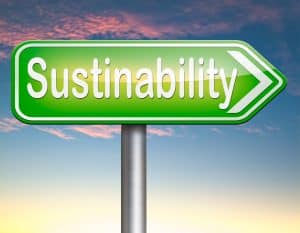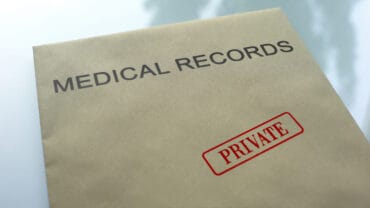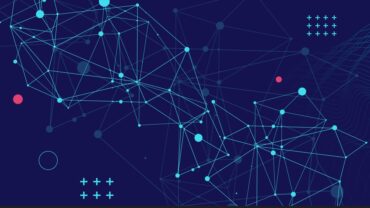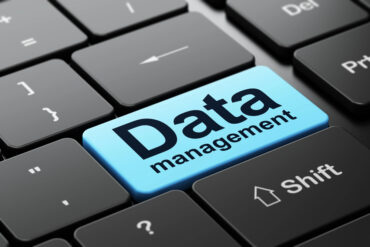
The bid for the linear economy to go circular is gaining momentum. Having operations and processes built around sustainability practices is beneficial for the environment, consumers, investors, governments, and businesses.
There’s a global focus working towards more ethical and sustainable practices not just driven by consumer choices but by the business world as well. It’s meant many businesses are looking to change their operations in line with a circular economy model–with a particular focus on sustainability, extending product lifecycles, eliminating single-use items and packaging, and creating more ethically sustainable operations. Changes in software infrastructure will be vital to support the inner workings of a circular economy and underpin one of the biggest shifts the manufacturing sector has ever experienced.
Linear business models have been the standard structure for the manufacturing industry for some time now. However, with the stats showing the world’s economy using 1.75 times higher the amount of goods than the Earth can house, there has been a spotlight on the manufacturing industry and the move towards circular economy practices. The move to sustainable practices doesn’t just benefit the environment. There are also financial benefits.
The power of three
There are three main characteristics of a circular economy model: reduce, re-use, recycle. Behind this, there needs to be a consistent cycle of turning used materials back into new. While this may sound straight forward, there needs to be a significant change to business for this to be a success. This change comes in the form of flexible ERP (enterprise resource planning).
The customer is always right
The first and most important factor pushing businesses toward the circular economy are the consumers. If a business does not comply with the famous phrase “reduce, re-use, recycle,” consumers are more likely to boycott the business. Research from a recent IBM study highlighted this, with half of the consumers saying they feel it is “very or extremely important” for a business to be sustainable.
With this in mind, an additional study from NYU Stern Center for Sustainable Business found sustainable CPGs (consumer packaged goods) are growing 5.6 times faster than their single-use counterparts. This is also stretching to B2B buyers who are also making their sustainable progress with plastic packaging due to a desire to mitigate liability and maintenance concerns.
Follow the money
Another area of business circular economy is hitting is the world of investment. In a study by Schroders, 55 percent say an investment in a sustainable organization harvests a better return. The statistics show the number of investors who have no investments in sustainably conscious companies are down 12 percent.
Furthermore, finance has also gone circular with varying, sustainability-conscious loans. The first sustainably-linked loan is referred to as a “green loan,” which brings reduced risk from regulation and provides more attractive terms for borrowers. Although green loans can mean there’s a certain level of restriction to specified environmental projects and practices, they encourage a business to strive towards more ethical and sustainably conscious working methods and targets.
Technology saving the day, once again!
Covid-19 has highlighted the importance of sustainability. Indeed a 2020 survey by GlobeScan and BBMG found 60 percent of under-30s and 53 percent of older participants saying businesses need to ‘build back better’ for sustainability post-pandemic. In a recent IFS MindFuel for Manufacturing event, Maggie Slowik, research manager for manufacturing insights at IDC in Europe, the Middle East, and Africa, has stated: “When we surveyed our manufacturing community in Europe, 46 percent of them told us that the pandemic has had a very positive impact on sustainability development goals,” she said. “I would almost go so far as saying sustainability is the new digital.”
Technology has proved itself to be a key player in the success of the circular economy. Digital platforms, cloud-based solutions, and artificial intelligence (AI) have enabled waste management to be enhanced and increasing liability for those involved throughout supply chain processes.
Changing habits for changing a changing economy
A 2020 McKinsey report has highlighted the importance of consumer attitudes towards sustainable packaging. The impact of plastic packaging on the environment is the main focus for consumers, with marine pollution and disruption to wildlife and habitats motivating consumers to think more sustainably and therefore putting packaging regulations at the center of circular economies.
Recycled and recyclable plastic has also been put in the spotlight with its importance to consumers. As many as 60 percent claim they would be more inclined to buy a product and even pay more for it if it had ‘green packaging.’
But despite Gartner claiming circular economies will irradicate linear economies by 2029, non-profit Circular Economy found the percentage of the world economy that was circular was down half a percent from 9.1 percent in 2018 to 8.6 percent in 2019. This drop shows why packaging, not just the product, is important for a circular economy and environmental footprint management. Manufacturers must strategize new business plans and processes, with support being directed to business systems for reverse logistics.
Putting it into practice by going into reverse
The return of a product is a crucial part of the circular economy process. Restoring and capturing the product’s value once it’s reached its full life use involves re-using, recycling, and even re-manufacturing.
This reverse logistics initially started with the consumer-driven return of goods, for example, beverage bottles or cans through RMA (return materials authorization). The returns process is still an important area for customer experience, which have been developed over time. A returns scheme in the U.S. which offers a cash return of empty packaging has proved popular, which has now been additionally introduced in over 20 states.
A deposit scheme or any reverse logistics software must comply with the contractual obligations and processes with the afterlife of a product and what has been promised to the customer. All of which must comply with sustainability practices and regulations. But supporting software must deal with contractual obligations and complex processes around reverse logistics – whether that is money back, a fixed product, or replacing the item all together – all while supporting sustainability practices.
Software simplifies complexity
Software simplifies the complex nature of circular economies. Software sets business rules which focus on the impact of repairing an item has vs. replacing said item. Circular economy processes need to be as productive and comparable to their linear competitors. This can be managed by ERP and field service software, which can track components with their location, ownership, and even those who have gone to a third-party manufacturer. Systems will need to be in place to link lifecycle cost data to quality and design to make the circular economy model viable.
IFS Manufacturing Industries Vice President Colin Elkins has stated: “In a servitization world, the last thing we want is for our products to fail, which is totally the opposite model of where we were 20 years ago when manufacturers made most of their profit out of spares. Now it’s a case of trying to keep everything in the economy for as long as possible,” explains Elkins.
“Software can incorporate tools to capture the environmental footprint of the product over its lifecycle and present information for decision support,” says Elkins.
The circle of life
The bid for the linear economy to go circular is gaining momentum, with the prospective benefits becoming loud and clear. Having operations and processes built around sustainability practices is beneficial not only for the environment but for consumers, investors, governments, and businesses. The financial ripple effect is shown through an increase in consumer spending and brand loyalty.
ERP systems are the essential infrastructure, bringing simplicity to the otherwise complex inner workings of circular economies. From traceability requirements to waste management, the right infrastructure will help businesses close the loop and truly become part of the growing circular economy.





























